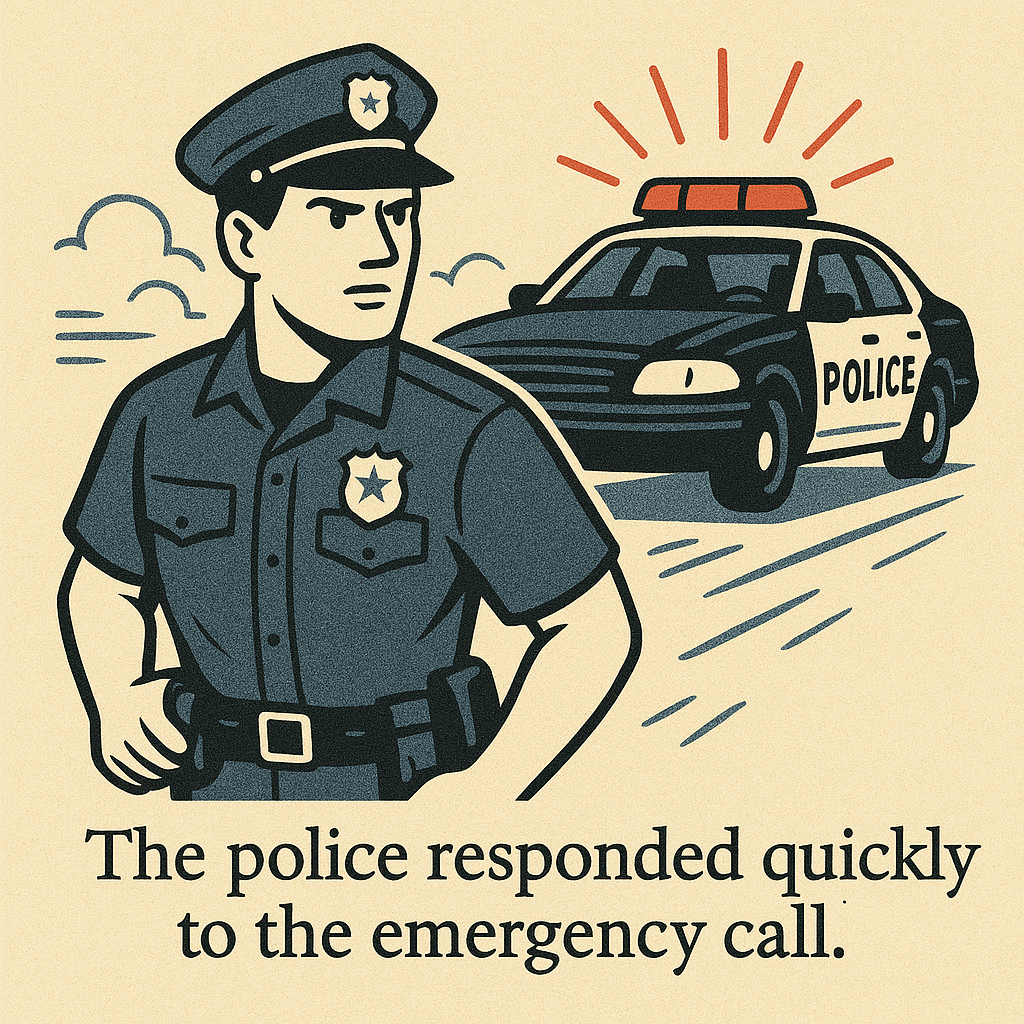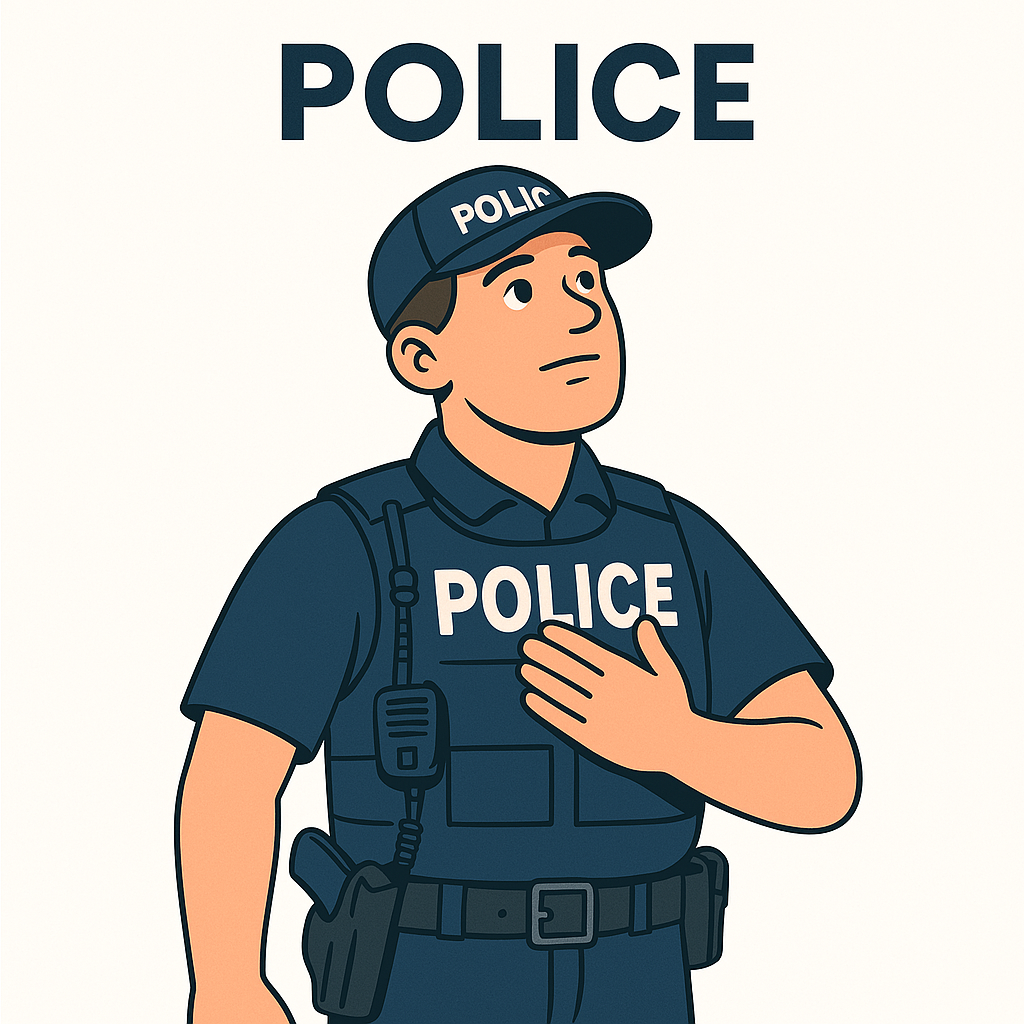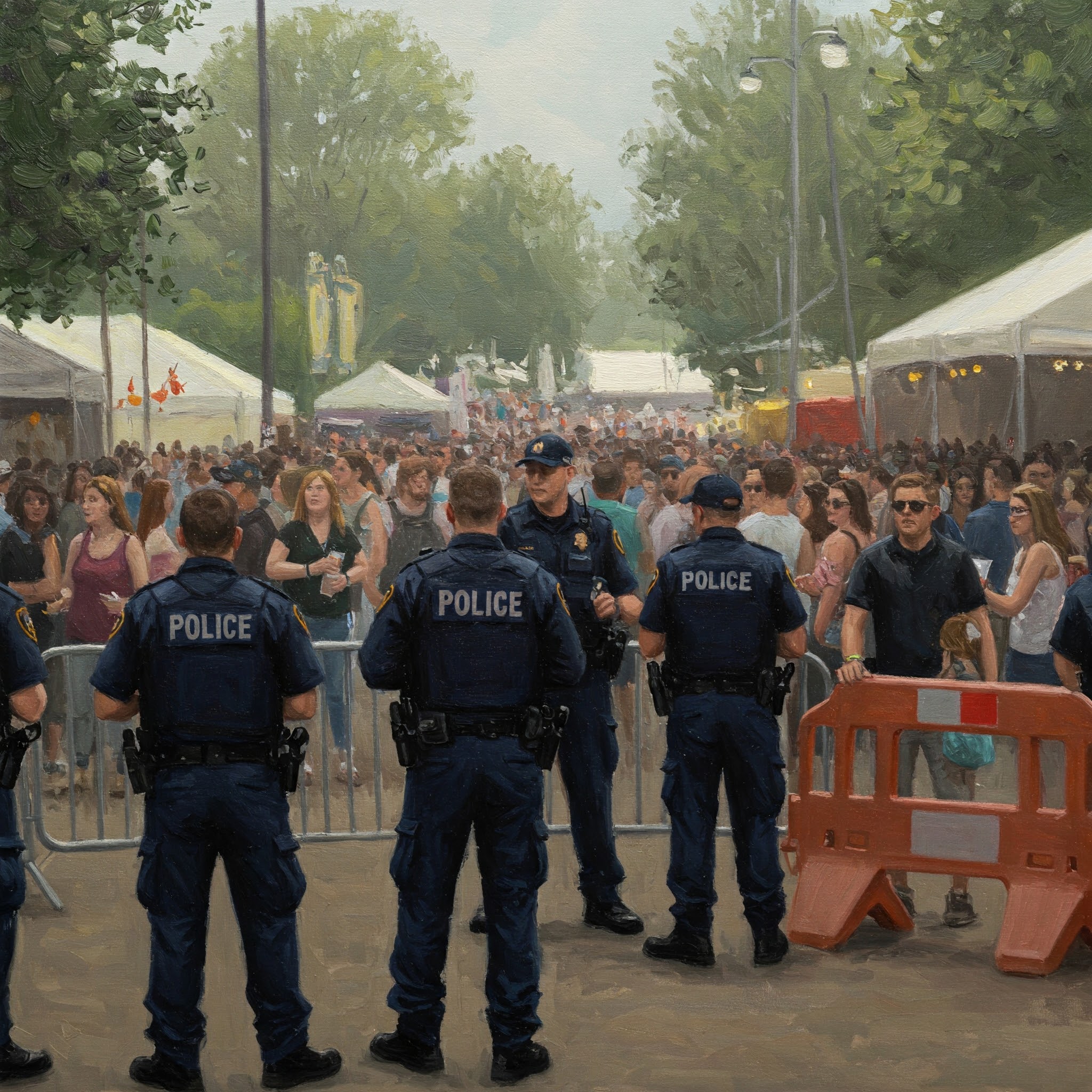Police
Definition
The term "police" describes a civil force responsible for maintaining public order, enforcing laws, and preventing and investigating crimes.
Parts of Speech
- Noun
- Verb
Pronunciation
American English
- IPA Pronunciation: /pəˈliːs/
- Respelling: puh-LEES
British English
- IPA Pronunciation: /pəˈliːs/
- Respelling: puh-LEES
Etymology
The word "police" originates from the French "police," meaning "public order" or "administration," derived from the Latin "politia" (civil administration) and the Greek "polis" (city). It entered the English language in the 15th century.
Derivatives
- Policing (noun, verb)
- Policeman (noun)
- Policewoman (noun)
- Policeable (adjective)
- Police force (noun)
Synonyms
- Law enforcement
- Constabulary
- Security
Antonyms
- None
Usage
The term "police" is widely used in legal, administrative, and colloquial contexts. For example: "The police arrested the suspect," or "There was a heavy police presence at the event."
Related Terms
- Crime: An act against the law.
- Law: A system of rules enforced by a society.
- Authority: The power to enforce laws or commands.
Detailed Definitions
Noun
- A civil force responsible for public order: Refers to the organization tasked with law enforcement and safety.
- Example: "The police responded quickly to the emergency call."
- The members of a police organization: Refers to individuals who serve in the force.
- Example: "The police were praised for their bravery."
Verb
- To maintain order or enforce laws: Refers to the act of controlling behavior or upholding rules.
- Example: "The area was heavily policed during the festival."
- To monitor or regulate an activity: Describes overseeing compliance or behavior.
- Example: "The company polices its employees’ internet usage."
police



🇨🇳 Mandarin
- 警察 (Literal: Police)
- IPA Pronunciation: /t͡ɕiŋ˧˥ tsʰa̠˥˩/
- English respelling: jǐngchá
- 公安 (Law and order: Public Security)
- IPA Pronunciation: /kʊŋ˧˥ an˥/
- English respelling: gōng'ān
🇮🇳 Hindi
- पुलिस (Literal: Police)
- IPA Pronunciation: /pʊlis/
- English respelling: pulis
- न्याय विभाग (Law and order: Justice Department)
- IPA Pronunciation: /ɲaːjaː vibhaːg/
- English respelling: nyay vibhag
🇪🇸 Spanish
- Policía (Literal: Police)
- IPA Pronunciation: /poliˈθia/
- English respelling: policía
- Fuerzas del orden (Law and order: Forces of Order)
- IPA Pronunciation: /ˈfweɾθas ðel ˈoɾðen/
- English respelling: fuerzas del orden
🇫🇷 French
- Police (Literal: Police)
- IPA Pronunciation: /pɔ.lis/
- English respelling: police
- Forces de l'ordre (Law and order: Forces of Order)
- IPA Pronunciation: /fɔʁs də lɔʁdʁ/
- English respelling: forces de l'ordre
🇸🇦 Modern Standard Arabic
- الشرطة (Literal: Police)
- IPA Pronunciation: /ʃurˈtˤa/
- English respelling: ash-shurta
- قوى الأمن (Law and order: Security Forces)
- IPA Pronunciation: /quwwat al-ʔamn/
- English respelling: quwwat al-amn
🇧🇩 Bengali
- পুলিশ (Literal: Police)
- IPA Pronunciation: /pulish/
- English respelling: pulish
- আইন প্রয়োগকারী বাহিনী (Law and order: Law enforcement agency)
- IPA Pronunciation: /ain projoɡkari bahini/
- English respelling: ain proyogkari bahini
🇷🇺 Russian
- Полиция (Literal: Police)
- IPA Pronunciation: /pɐˈlʲitsɨjə/
- English respelling: politsiya
- Силы порядка (Law and order: Forces of Order)
- IPA Pronunciation: /sʲilɨ pɐˈrjadkə/
- English respelling: sily poryadka
🇵🇹 Portuguese
- Polícia (Literal: Police)
- IPA Pronunciation: /puˈlisjɐ/
- English respelling: polícia
- Forças de ordem (Law and order: Forces of Order)
- IPA Pronunciation: /ˈfoʁsɐs dɨ ˈoɾdẽj/
- English respelling: forças de ordem
🇮🇩 Indonesian
- Polisi (Literal: Police)
- IPA Pronunciation: /polisi/
- English respelling: polisi
- Aparat penegak hukum (Law and order: Law enforcement officers)
- IPA Pronunciation: /aparat penegak hukum/
- English respelling: aparat penegak hukum
🇩🇪 German
- Polizei (Literal: Police)
- IPA Pronunciation: /poˈliːt͡saɪ̯/
- English respelling: polizei
- Ordnungskräfte (Law and order: Forces of Order)
- IPA Pronunciation: /ˈɔʁdnʊŋsˌkʁɛftə/
- English respelling: ordnungskräfte
🇯🇵 Japanese
- 警察 (Literal: Police)
- IPA Pronunciation: /ke̞ːsat͡ɕi/
- English respelling: keisatsu
- 法の執行者 (Law and order: Law enforcers)
- IPA Pronunciation: /hoː no ʃiɡjoːʃa/
- English respelling: hō no shikkōsha
🇻🇳 Vietnamese
- Cảnh sát (Literal: Police)
- IPA Pronunciation: /kəːŋ ʂəːt˧˧ˀ˥/
- English respelling: cảnh sát
- Lực lượng duy trì trật tự (Law and order: Forces maintaining order)
- IPA Pronunciation: /luk̚˧ˀ˥ lwɔ˧ˀ˥ jwi˧˥ ʈɨ̞ˀ˦ˀ˥ ʈʂaːt̚˦ˀ˥ tɤ˧˧˩/
- English respelling: lực lượng duy trì trật tự
🇰🇷 Korean
- 경찰 (Literal: Police)
- IPA Pronunciation: /kjʌŋ.tɕʰal/
- English respelling: gyeongchal
- 질서 유지력 (Law and order: Forces maintaining order)
- IPA Pronunciation: /t͈ɕil.so ju.t͈ɕi.ɾjʌk̚/
- English respelling: jilseo yuji-nyeok
🇹🇷 Turkish
- Polis (Literal: Police)
- IPA Pronunciation: /polis/
- English respelling: polis
- Düzen güçleri (Law and order: Order Forces)
- IPA Pronunciation: /dyzen gyʧleɾi/
- English respelling: düzen güçleri
🇵🇰 Urdu
- پولیس (Literal: Police)
- IPA Pronunciation: /pʊliːs/
- English respelling: police
- قانون نافذ کرنے والے (Law and order: Law enforcers)
- IPA Pronunciation: /kaːnun naːfez kərne waːle/
- English respelling: qanoon nafiz karne wale





